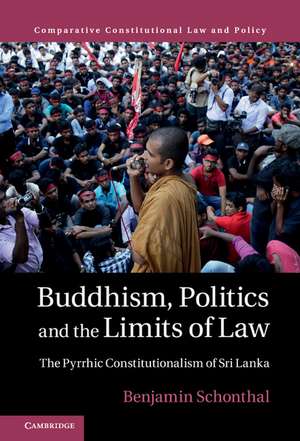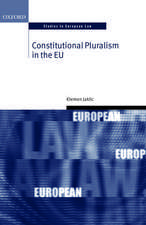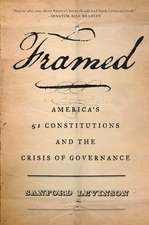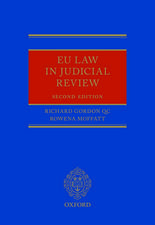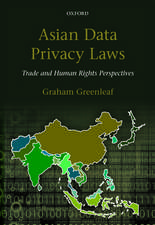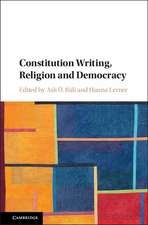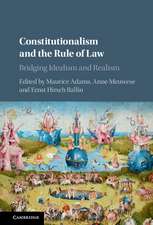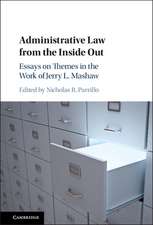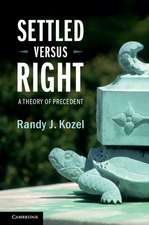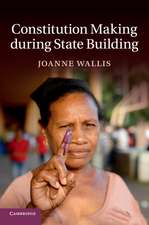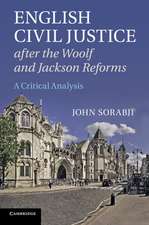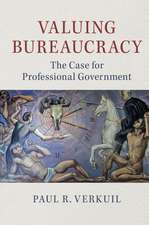Buddhism, Politics and the Limits of Law: The Pyrrhic Constitutionalism of Sri Lanka: Comparative Constitutional Law and Policy
Autor Benjamin Schonthalen Limba Engleză Hardback – 16 noi 2016
| Toate formatele și edițiile | Preț | Express |
|---|---|---|
| Paperback (1) | 286.89 lei 6-8 săpt. | |
| Cambridge University Press – 14 mar 2018 | 286.89 lei 6-8 săpt. | |
| Hardback (1) | 507.11 lei 6-8 săpt. | |
| Cambridge University Press – 16 noi 2016 | 507.11 lei 6-8 săpt. |
Din seria Comparative Constitutional Law and Policy
-
 Preț: 439.01 lei
Preț: 439.01 lei -
 Preț: 293.64 lei
Preț: 293.64 lei -
 Preț: 367.67 lei
Preț: 367.67 lei - 14%
 Preț: 739.13 lei
Preț: 739.13 lei -
 Preț: 280.48 lei
Preț: 280.48 lei -
 Preț: 206.84 lei
Preț: 206.84 lei -
 Preț: 236.43 lei
Preț: 236.43 lei -
 Preț: 178.97 lei
Preț: 178.97 lei -
 Preț: 177.71 lei
Preț: 177.71 lei - 9%
 Preț: 660.82 lei
Preț: 660.82 lei - 9%
 Preț: 696.09 lei
Preț: 696.09 lei -
 Preț: 289.73 lei
Preț: 289.73 lei -
 Preț: 238.36 lei
Preț: 238.36 lei -
 Preț: 201.18 lei
Preț: 201.18 lei -
 Preț: 238.11 lei
Preț: 238.11 lei - 9%
 Preț: 695.78 lei
Preț: 695.78 lei -
 Preț: 319.99 lei
Preț: 319.99 lei -
 Preț: 248.39 lei
Preț: 248.39 lei -
 Preț: 358.66 lei
Preț: 358.66 lei -
 Preț: 283.03 lei
Preț: 283.03 lei -
 Preț: 358.48 lei
Preț: 358.48 lei - 14%
 Preț: 742.60 lei
Preț: 742.60 lei - 14%
 Preț: 727.91 lei
Preț: 727.91 lei - 23%
 Preț: 635.44 lei
Preț: 635.44 lei - 14%
 Preț: 721.78 lei
Preț: 721.78 lei -
 Preț: 283.25 lei
Preț: 283.25 lei -
 Preț: 267.18 lei
Preț: 267.18 lei -
 Preț: 284.56 lei
Preț: 284.56 lei -
 Preț: 321.31 lei
Preț: 321.31 lei -
 Preț: 385.61 lei
Preț: 385.61 lei -
 Preț: 286.89 lei
Preț: 286.89 lei -
 Preț: 356.75 lei
Preț: 356.75 lei - 23%
 Preț: 701.70 lei
Preț: 701.70 lei - 14%
 Preț: 723.27 lei
Preț: 723.27 lei -
 Preț: 322.29 lei
Preț: 322.29 lei -
 Preț: 358.48 lei
Preț: 358.48 lei
Preț: 507.11 lei
Preț vechi: 569.78 lei
-11% Nou
Puncte Express: 761
Preț estimativ în valută:
97.05€ • 100.55$ • 80.99£
97.05€ • 100.55$ • 80.99£
Carte tipărită la comandă
Livrare economică 21 martie-04 aprilie
Preluare comenzi: 021 569.72.76
Specificații
ISBN-13: 9781107152236
ISBN-10: 1107152232
Pagini: 320
Dimensiuni: 152 x 229 x 19 mm
Greutate: 0.59 kg
Editura: Cambridge University Press
Colecția Cambridge University Press
Seria Comparative Constitutional Law and Policy
Locul publicării:New York, United States
ISBN-10: 1107152232
Pagini: 320
Dimensiuni: 152 x 229 x 19 mm
Greutate: 0.59 kg
Editura: Cambridge University Press
Colecția Cambridge University Press
Seria Comparative Constitutional Law and Policy
Locul publicării:New York, United States
Cuprins
Acknowledgments; Commonly used abbreviations; A note on translation and language; 1. Introduction: religion, law and the pyrrhic constitutionalism of Sri Lanka; Part I. The Past Lives of the Buddhism Chapter: 2. Managing religion at the end of empire; 3. Contesting constitutions in the 1950s and 1960s; 4. Multivalent solutions: drafting the Buddhism chapter; Part II. From Creation to Implementation: 5. Legal battles for Buddhism; 6. Battles within Buddhism; 7. Constitutional conversions; 8. Conclusion: the costs of constitutional law; References; Index.
Recenzii
'There is nothing the study of law and religion needs more than deeply informed political and religious histories of postcolonial states and societies. This is exactly what this book offers. In an exhaustively researched legal ethnography of the treatment of religion in Sri Lankan constitutionalism, Benjamin Schonthal explores how Sri Lankans have wrestled with the tensions generated by a legal order that guarantees religious rights while also granting to the majority religion of Buddhism its 'rightful place'. Is it possible for the state to protect a tradition without interfering in it? Who speaks for Buddhism in these debates? This sobering story of the limits of law is a must-read for scholars of religion and politics, Buddhist studies, and comparative constitutional law.' Elizabeth Shakman Hurd, Northwestern University, Illinois
'Based on field observation, interviews, and a host of multilingual documents that include court records, parliamentary debates, and media reports, this work is a rich and vivid contribution to the study of religion, law, and politics in Sri Lanka. Meticulous in its detail, and strikingly imaginative in its conception, the work shows how the top-down constitutionalist attempt to negotiate an inequality of religions alongside an equality of citizens has led to the accomplishment of neither, and, even worse, the stimulation of the very conflicts and disharmonies the constitutionalist effort was meant to adjudicate and resolve in the first place. The work also yields fresh perspectives on the idea of 'the Buddhist State', a concept that has a long history and ongoing importance, particularly today, in South and Southeast Asia.' H. L. Seneviratne, Professor Emeritus, University of Virginia and author of The Work of Kings: The New Buddhism in Sri Lanka
'Constitutions are supposed to resolve social and political cleavages, but can also exacerbate them. In this wonderfully rich and original study of Sri Lanka, Schonthal exposes how constitutional language provides new fuel for political conflict over religion, providing a cautionary tale. A great theoretical and empirical contribution to the literature on comparative constitutional law.' Tom Ginsburg, Leo Spitz Professor of International Law and Professor of Political Science, University of Chicago
'All in all, this is a book that stands as an exemplar of how a dedicated scholar trained in relevant languages and working across disciplines on a single country case study can produce methodologically and conceptually significant research. And it is a book that challenges socio-legal researchers seeking to contest rather than simply affirm the received wisdom on the religious politics of comparative constitutional law to take more seriously those places, like Sri Lanka, and traditions, like Buddhism, that are usually relegated to the literature's margins. With Buddhism, Politics, and the Limits of Law, at least, Sri Lanka's experiences with pyrrhic constitutionalism shall now not be left out of the conversation.' Nick Cheesman, Law and Society Review
'Schonthal's account is meticulously researched and filled with fascinating details. Reading his historical account of the constitutional discourse culminating in the Buddhism chapter, one gets a unique glimpse into the personalities and ideologies that shape constitutional change in Sri Lanka.' Jaclyn L. Neo, ICON
'Anyone interested in how Constitutions manage religion should read this book. In addition, scholars who find themselves surrounded by an unwavering faith in the Constitution will have their assumptions about the inherent goodness of constitutional law shaken. The arguments in this book have long-lasting and broad implications for the way in which we think about and study law and religion. Schonthal's book has resonance not only for contemporary debates in other Buddhist majority countries that constitutionally recognize Buddhism, such as Myanmar and Thailand, but also for broader debates over the relationship between religion and constitutional law.' Melissa Crouch, Asian Journal of Law and Society
'It is an impressive volume - eminently readable, compellingly narrated, and creatively written.' Chad M. Bauman, Commonwealth & Comparative Politics
'Based on field observation, interviews, and a host of multilingual documents that include court records, parliamentary debates, and media reports, this work is a rich and vivid contribution to the study of religion, law, and politics in Sri Lanka. Meticulous in its detail, and strikingly imaginative in its conception, the work shows how the top-down constitutionalist attempt to negotiate an inequality of religions alongside an equality of citizens has led to the accomplishment of neither, and, even worse, the stimulation of the very conflicts and disharmonies the constitutionalist effort was meant to adjudicate and resolve in the first place. The work also yields fresh perspectives on the idea of 'the Buddhist State', a concept that has a long history and ongoing importance, particularly today, in South and Southeast Asia.' H. L. Seneviratne, Professor Emeritus, University of Virginia and author of The Work of Kings: The New Buddhism in Sri Lanka
'Constitutions are supposed to resolve social and political cleavages, but can also exacerbate them. In this wonderfully rich and original study of Sri Lanka, Schonthal exposes how constitutional language provides new fuel for political conflict over religion, providing a cautionary tale. A great theoretical and empirical contribution to the literature on comparative constitutional law.' Tom Ginsburg, Leo Spitz Professor of International Law and Professor of Political Science, University of Chicago
'All in all, this is a book that stands as an exemplar of how a dedicated scholar trained in relevant languages and working across disciplines on a single country case study can produce methodologically and conceptually significant research. And it is a book that challenges socio-legal researchers seeking to contest rather than simply affirm the received wisdom on the religious politics of comparative constitutional law to take more seriously those places, like Sri Lanka, and traditions, like Buddhism, that are usually relegated to the literature's margins. With Buddhism, Politics, and the Limits of Law, at least, Sri Lanka's experiences with pyrrhic constitutionalism shall now not be left out of the conversation.' Nick Cheesman, Law and Society Review
'Schonthal's account is meticulously researched and filled with fascinating details. Reading his historical account of the constitutional discourse culminating in the Buddhism chapter, one gets a unique glimpse into the personalities and ideologies that shape constitutional change in Sri Lanka.' Jaclyn L. Neo, ICON
'Anyone interested in how Constitutions manage religion should read this book. In addition, scholars who find themselves surrounded by an unwavering faith in the Constitution will have their assumptions about the inherent goodness of constitutional law shaken. The arguments in this book have long-lasting and broad implications for the way in which we think about and study law and religion. Schonthal's book has resonance not only for contemporary debates in other Buddhist majority countries that constitutionally recognize Buddhism, such as Myanmar and Thailand, but also for broader debates over the relationship between religion and constitutional law.' Melissa Crouch, Asian Journal of Law and Society
'It is an impressive volume - eminently readable, compellingly narrated, and creatively written.' Chad M. Bauman, Commonwealth & Comparative Politics
Notă biografică
Descriere
Examining Sri Lanka's religious and legal pasts, this is the first extended study of Buddhism and constitutional law.
